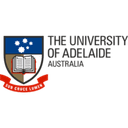Dive into the building blocks of human anatomy - from cells to tissues - designed for future healthcare professionals and biology enthusiasts alike.
Dive into the building blocks of human anatomy - from cells to tissues - designed for future healthcare professionals and biology enthusiasts alike.
This comprehensive course provides a foundational understanding of human anatomy and physiology, focusing on cells and tissues. Students will explore the complex relationships between structure and function in human cells and the four main tissue types: epithelial, connective, muscular, and nervous. Through engaging multimedia content including videos, animations, and interactive activities, learners gain practical knowledge of human biology essential for health-related careers. The course emphasizes both normal functioning and disease states, making it ideal for health science preparation or general interest.
4.6
(58 ratings)
88,772 already enrolled
Instructors:
English
English
What you'll learn
Master the fundamental concepts of human cell structure and function
Understand the properties and behaviors of the four main tissue types
Explore the relationship between cellular structure and disease
Gain essential knowledge for health science careers
Apply biological concepts to understand human body systems
Skills you'll gain
This course includes:
PreRecorded video
Graded assignments, exams
Access on Mobile, Tablet, Desktop
Limited Access access
Shareable certificate
Closed caption
Get a Completion Certificate
Share your certificate with prospective employers and your professional network on LinkedIn.
Created by
Provided by

Top companies offer this course to their employees
Top companies provide this course to enhance their employees' skills, ensuring they excel in handling complex projects and drive organizational success.





There are 5 modules in this course
This introductory course explores the fundamental building blocks of human biology, focusing on cells and tissues. The curriculum covers the relationships between structure and function in human cells and tissues, both in health and disease states. Students learn about the four main tissue types (epithelial, connective, muscular, and nervous) and their properties. The course uses various engaging learning methods, including videos, animations, and interactive activities, making complex biological concepts accessible and relevant. This foundation is particularly valuable for those pursuing health-related careers or interested in understanding human body functions.
The cell
Module 1
Epithelial tissue
Module 2
Connective tissue
Module 3
Muscular tissue
Module 4
Nervous tissue
Module 5
Fee Structure
Instructors

2 Courses
Distinguished Medical Educator and E-Learning Innovation Leader
Mario Ricci currently serves as Deputy Dean of Learning and Teaching in the Faculty of Health and Medical Sciences at the University of Adelaide, where he has significantly influenced medical education through innovative teaching methods and technology integration. His career progression includes roles as Lecturer, Professor, Stephen Cole the Elder Fellow, and Director of E-Learning. For over a decade, he coordinated first-year Human Biology in the Bachelor of Health Sciences program, where he pioneered the implementation of research skill development frameworks. His contributions to education have earned him numerous accolades, including an Australian Office for Learning and Teaching Citation, the University of Adelaide Vice-Chancellor and President's Award, the Stephen Cole the Elder Award, and recognition as an Apple Distinguished Educator. His work spans research skill development, curriculum design, and the integration of technology in medical education, making him one of Australia's most outstanding university teachers. Through his leadership roles, he continues to shape the future of health sciences education while maintaining his commitment to innovative teaching practices and student engagement.

1 Course
Distinguished Medical Researcher and Cancer Treatment Expert
Rachel Gibson serves as Head of the School of Allied Health Science and Practice at the University of Adelaide, where she leads groundbreaking research in supportive cancer care and gut microbiome studies. A prolific researcher with over 120 journal articles, six book chapters, and 75 conference abstracts, she co-heads the Cancer Treatment Toxicities Group at Adelaide Medical School. Her research focuses on the toxic effects of chemotherapy on gut microbiome and the development of intestinal mucositis in cancer patients. Her contributions to the field earned her MASCC's 2019 Distinguished Service Award, the organization's highest honor. Previously serving as Professor and Dean: Academic in the Division of Health Sciences at University of South Australia, she has demonstrated excellence in both research and academic leadership. Her work spans pathology, molecular biology, microbiology, and immunology, while maintaining active involvement in developing clinical practice guidelines for mucositis management in cancer therapy. Beyond research, she is recognized as a skilled communicator and mentor, contributing significantly to global supportive care knowledge and practice.
Testimonials
Testimonials and success stories are a testament to the quality of this program and its impact on your career and learning journey. Be the first to help others make an informed decision by sharing your review of the course.
Frequently asked questions
Below are some of the most commonly asked questions about this course. We aim to provide clear and concise answers to help you better understand the course content, structure, and any other relevant information. If you have any additional questions or if your question is not listed here, please don't hesitate to reach out to our support team for further assistance.



